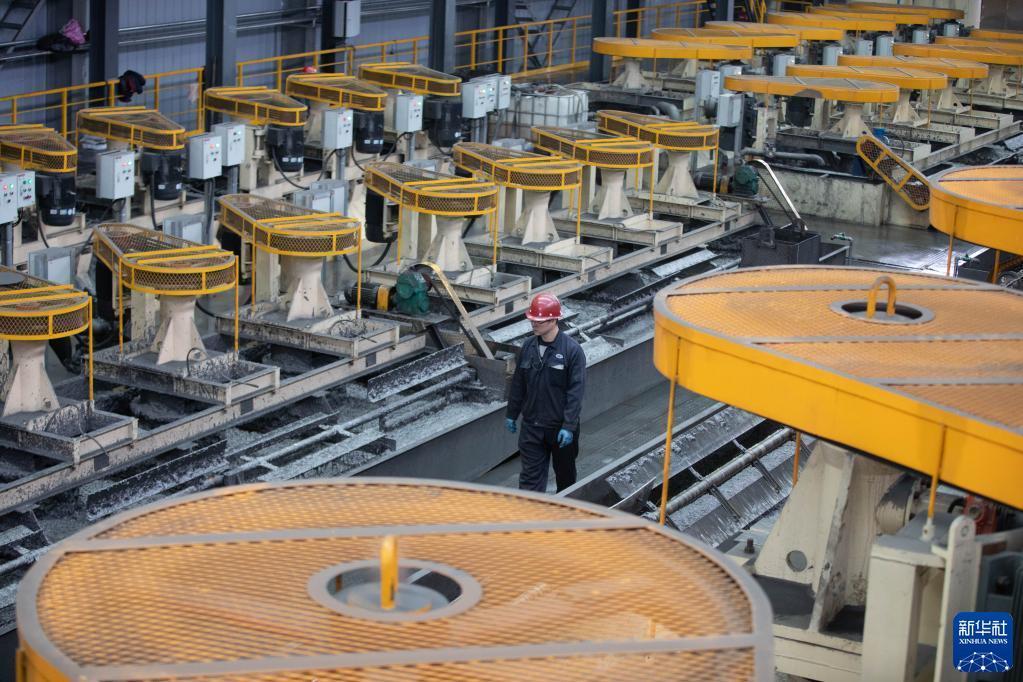TMTPOST -- U.S. graphite producers are seeking Washington to impose hefty tariffs on Chinese imports of the crucial material used in electric vehicle (EV) batteries.
Credit:Xinhua News Agency
A trade association representing U.S. graphite producers submitted petitions to two federal agencies after business hours on Tuesday, asking for probe into whether Chinese companies are violating anti-dumping laws, a Bloomberg report cited relevant documents.
The industry group is aiming to trigger punitive tariffs of up to 920% on Chinese graphite in retaliation, according to the report. It reportedly argued China’s massive state subsidies are artificially lowering prices and making it impossible for their companies to compete. The move marks an early sign of potential high-stakes disputes among strategic industries as president-elect Donald Trump assumes his second presidency with a promise of significantly higher import duties.
In a post on November 25 on his social media platform Truth Social, Trump said his first of “many” executive orders on January 20, the day he takes office, would introduce 25% tariffs on goods entering the US from Canada and Mexico, and will also increase existing tariffs on China by 10%.
For China, an additional 10% tariff will be charged on goods coming from China, on top of any other tariffs until cracks down on fentanyl being smuggled out the country. 10% is lower than Trump threatened before. as a candidate, he has had pledged to slap 60% tariffs on all goods coming in from China and 10% tariffs on goods imported from all other countries.
China has targeted several key minerals including graphite in a tit-for-tat move after the U.S. government furthered its export controls on the semiconductor industry. China's Ministry of Commerce (MOFCOM) announced on December 3 it made a decision to tighten the control over the export of relevant dual-use items to the United States, to safeguard national security and interests and fulfill non-proliferation and other international obligations.
According to the announcement that came into effect on December 3, the export of dual-use items to U.S. military users or for military purposes is prohibited. In principle, the dual-use items related to gallium, germanium, antimony and superhard materials is not allowed to export to the United States, while stricter examinations on end-users and end-use purposes are to be conducted regarding exports of the dual-use item of graphite to the United States.
Any organization or individual from any country or region that, in violation of the above provisions, transfers or provides relevant dual-use items originating in China to the United States will be held legally responsible, the MOFCOM said in a statement.
Dual-use items mean goods, technologies and services that may be used for either civil or military purposes or to contribute to an increase in military potential, especially to design, develop, produce or use weapons of mass destruction and their means of delivery.
The announcement came a day after the U.S Department of Commerce’s Bureau of Industry and Security (BIS) unveiled a package of rules designed to further impair China’s capability to produce advanced-node semiconductors that can be used in the next generation of advanced weapon systems and in artificial intelligence (AI) and advanced computing.
The rules include new controls on 24 types of semiconductor manufacturing equipment and 3 types of software tools for developing or producing semiconductors; new controls on high-bandwidth memory (HBM); new red flag guidance to address compliance and diversion concerns; 140 Entity List additions and 14 modifications spanning Chinese tool manufacturers, semiconductor fabs, and investment companies involved in advancing the Chinese government’s military modernization; and several critical regulatory changes to enhance the effectiveness of the previous controls, according to a press of the BIS.
It is unsurprising that China, as a dominant producer of rare minerals, to hit back at United States' new semiconductor export control. Gallium, germanium, and antimony are key to the production of semiconductor chips and other advanced technologies. China is the world's biggest producer of gallium and germanium, which are used to make computer chips, cars, solar panels and other products.

Comments